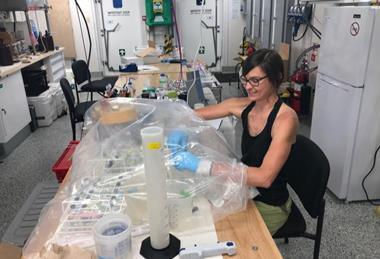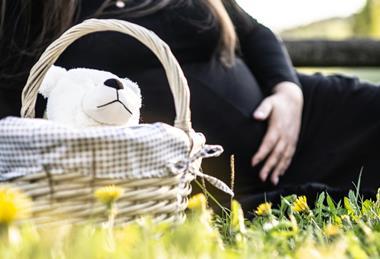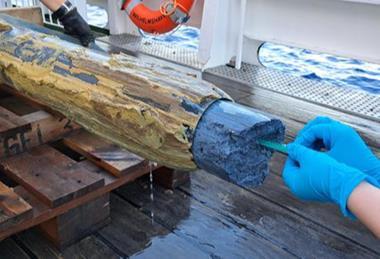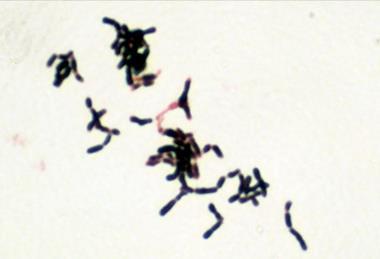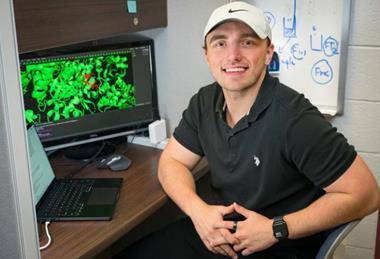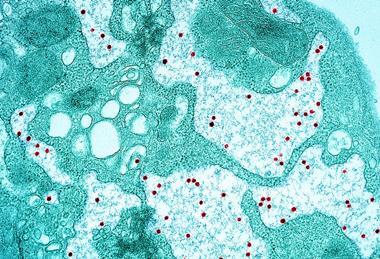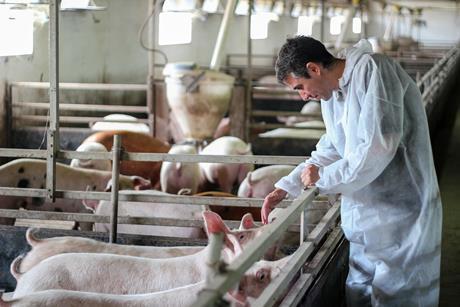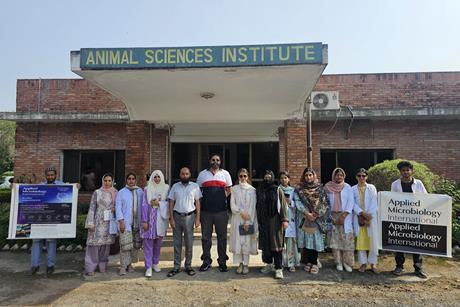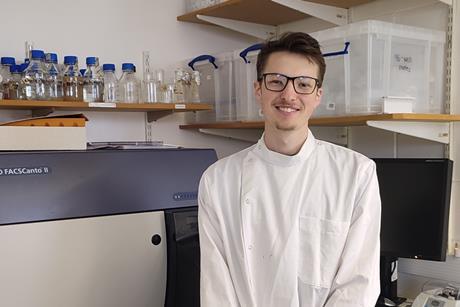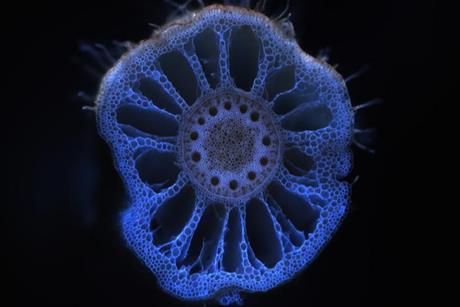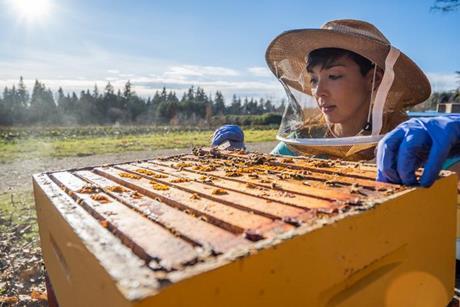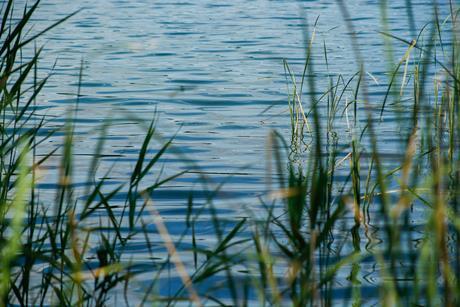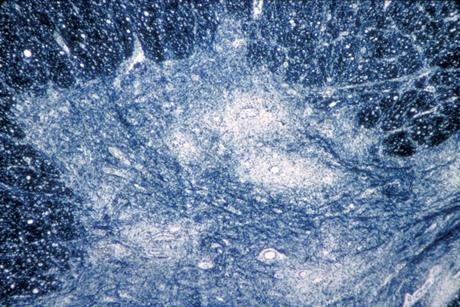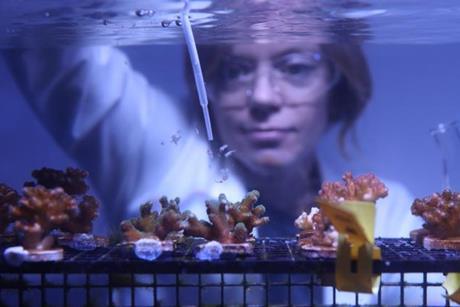Horizon Awards 2025: Professor Elaine Cloutman-Green named as winner of Christiana Figueres Policy to Practice Award
Professor Elaine Cloutman-Green, Consultant Clinical Scientist at Great Ormond Street Hospital, has been named as the newest winner of the Christiana Figueres Policy to Practice Award.
- Previous
- Next
Microbial-induced pathologies in 80-million-year-old dinosaur bones
In the microbiology laboratory, we observe infection in real-time: bacterial colonies spreading across agar plates, inflammatory markers rising in blood samples, and immune responses captured at single timepoints. But what if we could watch only one frame at a time of an entire infection unfold from initial pathogen invasion through ...
Read storyWhat are we swimming in? The growing need for Microbial Source Tracking
The pandemic changed the way many of us connect with the outdoors. Wild swimming and other aquatic pursuits have seen an increase in public interest since 2020, and with that, a heightened awareness of water quality.
Under the microscope: Body farms
Human Taphonomy Facilities, also known as body farms, are outdoor research facilities used to study human decomposition under different environmental conditions and stressors.
Breathing alien air: the search for biosignatures on exoplanets
Among the most promising indicators of biogenic elements are volatile organic compounds produced by life forms. The detection of specific metabolites such as dimethyl sulphide (DMS) and related compounds may hint at extraterrestrial biology.
Get unlimited access to The Microbiologist
The Microbiologist provides detailed information on the latest research, topics, reviews, events and news on a wide variety of microbiological topics.
Members of Applied Microbiology International get unlimited access as a benefit. Find out more about AMI Membership
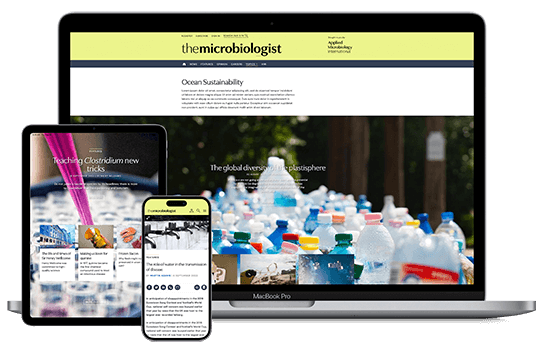
Could livestock-originated probiotics replace synthetic antibiotics for livestock?
In many developing countries, the use of antibiotics in both humans and animals is often indiscriminate and poorly regulated. Could livestock-originated probiotics be a suitable replacement?
Key lessons from the saMBA studies on human gut microbiome diversity
A recent study published in Nature Communications introduced the South American MicroBiome Archive (saMBA). The study offers several critical insights that deserve careful consideration.
Sustainability starts at the bench: microbiologists leading by example
The scale of the environmental crisis demands that sustainability move from the margins to the centre of every discipline.
Global Ambassadors: Study visit offers students real-life experience in dairy processing setups
AMI Global Ambassador for Pakistan, Dr. Arsalan Zaidi, reveals how a study visit aimed to provide students with real-life experience in local dairy and cheese processing industrial setups, connecting classroom learning with industrial and research applications.
Summer studentship: Owen investigates how fungal hyphae interact with lung cells
Owen Nicholson reports back on his AMI-sponsored summer studentship which investigated the role of Piezo1 in the immune response during fungal invasion of the human lung at the University of East Anglia.
Next-gen microbiologists: from innovators to business leaders
Today, we need microbiologists to be not only academics or researchers but also budding innovators, entrepreneurs, and business leaders. Career possibilities in this domain are vast, as people can build their own ventures, become policy makers, and employers.
Underweight and unbalanced: Gut microbial diversity in underweight Japanese women
A study of underweight Japanese women reveals they showed reduced gut microbiota diversity and enrichment of taxa associated with inflammatory tendencies. The findings suggest that gut health is as important as caloric intake when it comes to addressing low body weight.
Student’s unexpected rise as a researcher leads to critical new insights into HPV
In two years, a student went from lab novice to medical diagnostics honors student whose study revealed how mutations in HPV proteins may increase cancer risk.
Discovery of viral entry routes into cells points to future prevention, treatment strategies
Researchers have identified central routes that two deadly viruses take to invade human cells and have designed decoy molecules that block the infections. The discoveries set the stage for developing new prevention and treatment strategies for yellow fever virus and tick-borne encephalitis viruses.
Food security
New study explores ‘legacy effects’ of soil microbes on plants across Kansas
A new study analyzes soils sampled across the state of Kansas to determine the importance of “legacy effects” — or how soils from a specific location are influenced by microbes that have evolved in response to the specific climate at that site for many years.
Clean Water
Drones reveal unexpectedly high emissions from wastewater treatment plants
Greenhouse gas emissions from many wastewater treatment plants may be more than twice as large as previously thought. This is shown in a new study in which the researchers used drones with specially manufactured sensors to measure methane and nitrous oxide emissions.
Bacteria reveal how climate-damaging nitrous oxide forms in the ocean
Marine microorganisms produce large amounts of nitrous oxide, a highly potent greenhouse gas. Researchers investigated the exact processes involved during an expedition to the Pacific. The results are important for climate modeling.


